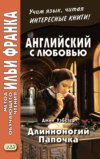Buch lesen: «The Four-Pools Mystery», Seite 6
CHAPTER XI
THE SHERIFF VISITS FOUR-POOLS
We found the coroner and told our story. He sent word to Kennisburg, the county-seat, for the sheriff to come; and then having called a doctor and three or four other witnesses, we set out again for the cave. The news of the tragedy had spread like wild-fire, and half the town of Luray would have accompanied us had the coroner not forcibly prevented it. He stationed two men at the entrance of the cave to keep the crowd from pushing in. I myself should have been more than willing to wait outside, but I felt that it was my duty by Radnor to be present. If any discoveries were made I wished to be the first to know it.
It was sad business and I will not dwell upon it. One side of the old man's head had been fractured by a heavy blow. He had been dead several hours when we found him, but the doctor could not be certain whether drowning, or the injury he had sustained, had been the immediate cause of death. Dangling from a jagged piece of rock half way down the cliff, we found Polly Mathers's coat, torn and drabbled with mud. The clay path above the pool was trampled in every direction 'way out to the brink of the precipice; it was evident, even to the most untrained observer, that a fierce struggle of some sort had taken place. I was the first one to examine the marks, and as I knelt down and held the light to the ground, I saw with a thrill of mingled horror and hope that one pair of feet had been bare. Mose had taken part in the struggle, and dreadful as was the assurance, it was infinitely better than that other suspicion.
"It was Mose who committed the murder!" I cried to the coroner as I pointed to the foot-prints in the clay.
He bent over beside me and examined the marks.
"Ah–Mose was present," he said slowly, "but so was someone else. See, here is the print of the Colonel's boot and there beside it is the print of another boot; it is fully an inch broader."
But it was difficult to make out anything clearly, so trampled was the path. Our whole party had passed over the very spot not an hour before the tragedy. Whatever the others could see, I, myself, was blind to everything but the indisputable fact that Mose had been there.
As we were making ready to start back to the mouth of the cave, a cry from one of the men called our attention again to the scene of the struggle. He held up in his hand a small, gleaming object which he had found trodden into the path. It was a silver match box covered with dents and mud and marked "R. F. G." I recognized it instantly; I had seen Radnor take it from his pocket a hundred times. As I looked at it now my hope seemed to vanish and that same sickening suspicion rushed over me again. The men eyed each other silently, and I did not have to ask what they were thinking of. We turned without comments and started on our journey back to the village. The body was carried to the hotel to await the coroner's permission to take it home to Four-Pools. There was nothing more for me to do, and with a heavy heart I mounted again to return to the plantation.
Scarcely had I left the stable yard when I heard hoofs pounding along behind me in the darkness, and Jim Mattison galloped up with two of his men.
"If you are going to Four-Pools we will ride with you," he said, falling into pace beside me while the officers dropped behind. "I might as well tell you," he added, "that it looks black for Radnor. I'm sorry, but it's my duty to keep him under arrest until some pretty strong counter-evidence turns up."
"Where's Cat-Eye Mose?" I cried. "Why don't you arrest him?"
The sheriff made a gesture of disdain.
"That's nonsense. Everyone in the county knows Cat-Eye Mose. He wouldn't hurt a fly. If he was present at the time of the crime it was to help his master, and the man who killed Colonel Gaylord killed him too. I've known him all my life and I can swear he's innocent."
"You've known Radnor all your life," I returned bitterly.
"Yes," he said, "I have—and Jefferson Gaylord, too."
I rode on in silence and I do not think I ever hated anyone as, for the moment, I hated the man beside me. I knew that he was thinking of Polly Mathers, and I imagined that I could detect an undertone of triumph in his voice.
"It's well known," he went on, half to himself and half to me, "that Radnor sometimes had high words with his father; and to-day, they tell me at the hotel, he came back alone without waiting for the others, and while his horse was being saddled he drank off two glasses of brandy as if they had been water. All the men on the veranda marked how white his face was, and how he cursed the stable boy for being slow. It was evident that something had happened in the cave, and what with finding his match box at the scene of the crime—circumstantial evidence is pretty strong against him."
I was too miserable to think of any answer; and, the fellow finally having the decency to keep quiet, we galloped the rest of the way in silence.
Though it must have been long after midnight when we reached the house, lights were still burning in the downstairs rooms. We rode up to the portico with considerable clamor and dismounted. One of the men held the horses while Mattison and the other followed me into the house. Rad himself, hearing the noise of our arrival, came to the door to meet us. He was quite composed again and spoke in his usual manner.
"Hello, Arnold! Did you find him, and is the party over?"
He stopped uncertainly as he caught sight of the others. They stepped into the hall and stood watching him a moment without saying anything. I tried to tell him but the words seemed to stick in my throat.
"A—a terrible thing has happened, Rad," I stammered out.
"What's the matter?" he asked, a sudden look of anxiety springing to his face.
"I am sorry, Rad," Mattison replied, "but it is my duty to arrest you."
"To arrest me, for what?" he asked with a half laugh.
"For the murder of your father."
Radnor put out his hand against the wall to steady himself, and his lips showed white in the lamp light. At the sight of his face I could have sworn that he was not acting, and that the news came with as much of a shock to him as it had to me.
"My father murdered!" he gasped. "What do you mean?"
"His dead body was found in the cave, and circumstantial evidence points to you."
He seemed too dazed to grasp the words and Mattison said it twice before he comprehended.
"Do you mean he's dead?" Rad repeated. "And I quarrelled with him last night and wouldn't make it up—and now it's too late."
"I must warn you," the sheriff returned, "that whatever you say will be used against you."
"I am innocent," said Radnor, brokenly, and without another word he prepared to go. Mattison drew some hand-cuffs from his pocket, and Radnor looked at them with a dark flush.
"You needn't be afraid. I am not going to run away," he said. Mattison dropped them back again with a muttered apology.
I went out to the stable with one of the men and helped to saddle Jennie Loo. I felt all the time as though I had hold of the rope that was going to hang him. When we came back he and the sheriff were standing on the portico, waiting. Rad appeared to be more composed than any of us, but as I wrung his hand I noticed that it was icy cold.
"I'll attend to everything," I said, "and don't worry, my boy. We'll get you off."
"Don't worry!" He laughed shortly as he leaped into the saddle. "It's not myself I'm worrying over; I am innocent," and he suddenly leaned forward and scanned my face in the light from the open door. "You believe me?" he asked quickly.
"Yes," I cried, "I do! And what's more, I'll prove you're innocent."
CHAPTER XII
I MAKE A PROMISE TO POLLY
The next few days were a nightmare to me. Even now I cannot think of that horrible period of suspense and doubt without a shudder. The coroner set to work immediately upon his preliminary investigation, and every bit of evidence that turned up only seemed to make the proof stronger against Radnor.
It is strange how ready public opinion is to believe the worst of a man when he is down. No one appeared to doubt Rad's guilt, and feeling ran high against him. Colonel Gaylord was a well-known character in the countryside, and in spite of his quick temper and rather imperious bearing he had been a general favorite. At the news of his death a wave of horror and indignation swept through the valley. Among the roughs in the village I heard not infrequent hints of lynching; and even among the more conservative element, the general opinion seemed to be that lawful hanging was too honorable a death for the perpetrator of so brutal a crime.
I have never been able to understand the quick and general belief in the boy's guilt, but I have always suspected that the sheriff did not do all in his power to quiet the feeling. It was to a large extent, however, the past reasserting itself. Though Radnor's record was not so black as it was painted, still, it was not so white as it should have been. People shook their heads and repeated stories of how wild he had been as a boy, and how they had always foreseen some such end as this. Reports of the quarrels with his father were told and retold until they were magnified beyond all recognition. The old scandals about Jeff were revived again, and the general opinion seemed to be that the Gaylord boys were degenerates through and through. Rad's personal friends stood by him staunchly; but they formed a pitifully small minority compared to the general sensation-seeking public.
I visited Radnor in the Kennisburg jail on the morning of my uncle's funeral and found him quite broken in spirit. He had had time to think over the past, and with his father lying dead at Four-Pools, it had not been pleasant thinking. Now that it was too late, he seemed filled with remorse over his conduct toward the old man, and he dwelt continually on the fact of his having been unwilling to make up the quarrel of the night before the murder. In this mood of contrition he mercilessly accused himself of things I am sure he had never done. I knew that the jailer was listening to every word outside, and I became unspeakably nervous for fear he would say something which could be twisted into an incriminating confession. He did not seem to comprehend in the least the danger of his own position; he was entirely taken up with the horror of his father's death. As I was leaving, however, he suddenly grasped my hand with tears in his eyes.
"Tell me, Arnold, do people really believe me guilty?"
I knew by "people" he meant Polly Mathers; but I had not had an opportunity to speak with her alone since the day of the tragedy.
"I haven't talked to anyone but the sheriff," I returned.
"Mattison would be glad enough to prove it," Radnor said bitterly, and he turned his back and stood staring through the iron bars of the window, while I went out and the jailer closed the door and locked it.
All through the funeral that afternoon I could scarcely keep my eyes from Polly Mathers's face. She appeared so changed since the day of the picnic that I should scarcely have known her for the same person; it seemed incredible that three days could make such a difference in a bright, healthy, vigorous girl. All her youthful vivacity was gone; she was pale and spiritless with deep rings beneath her eyes and the lids red with crying. After the services were over, I approached her a moment as she stood in her black dress aloof from the others at the edge of the little family burying-ground. She greeted me with a tremulous smile, and then as her glance wandered back to the pile of earth that two men were already shoveling into the grave, her eyes quickly filled with tears.
"I loved him as much as if he were my own father," she cried, "and it's my fault that he's dead. I made him go!"
"No, Polly, it is not your fault," I said decisively. "It was a thing which no one could foresee and no one could help."
She waited a moment trying to steady her voice, then she looked up pleadingly in my face.
"Radnor is innocent; tell me you believe it."
"I am sure he is innocent," I replied.
"Then you can clear him—you're a lawyer. I know you can clear him!"
"You may trust me to do my best, Polly."
"I hate Jim Mattison!" she exclaimed, with a flash of her old fire. "He swears that Rad is guilty and that he will prove him so. Rad may have done some bad things, but he's a good man—better than Jim Mattison ever thought of being."
"Polly," I said with a touch of bitterness, "I wish you might have realized that truth earlier. Rad is at heart as splendid a chap as ever lived, and his friends ought never to have allowed him to go astray."
She looked away without answering, and then in a moment turned back to me and held out her hand.
"Good-by. When you see him again please tell him what I said."
As she turned away I looked after her, puzzled. I was sure at last that she was in love with Radnor, and I was equally sure that he did not know it; for in spite of his sorrow at his father's death and of the suspicion that rested on him, I knew that he would not have been so completely crushed had he felt that she was with him. Why must this come to him now too late to do him any good, when he had needed it so much before? I felt momentarily enraged at Polly. It seemed somehow as if the trouble might have been avoided had she been more straightforward. Then at the memory of her pale face and pleading eyes I relented. However thoughtless she had been before, she was changed now; this tragedy had somehow made a woman of her over night. When Radnor came at last to claim her, they would each, perhaps, be worthier of the other.
I returned to the empty house that night and sat down to look the facts squarely in the face. I had hitherto been so occupied with the necessary preparations for the funeral, and with instituting a search for Cat-Eye Mose, that I had scarcely had time to think, let alone map out any logical plan of action. Radnor was so stunned by the blow that he could barely talk coherently, and as yet I had had no satisfactory interview with him.
Immediately after the Colonel's death, I had very hastily run over his private papers, but had found little to suggest a clue. Among some old letters were several from Nannie's husband, written at the time of her sickness and death; their tone was bitter. Could the man have accomplished a tardy revenge for past insults? I asked myself. But investigation showed this theory to be most untenable. He was still living in the little Kansas village where she had died, had married again, and become a peaceful plodding citizen. It required all his present energy to support his wife and children—I dare say the brief episode of his first marriage had almost faded from his mind. There was not the slightest chance that he could be implicated.
I sifted the papers again, thoroughly and painstakingly, but found nothing that would throw any light upon the mystery. While I was still engaged with this task, a message came from the coroner saying that the formal inquest would begin at ten o'clock the next morning in the Kennisburg court-house. This gave me no chance to plan any sort of campaign, and I could do little more than let matters take their course. I hoped however that in the progress of the inquest, some clue would be brought to light which would render Radnor's being remanded for trial impossible.
So far, I had to acknowledge, the evidence against him appeared overwhelming. A motive was supplied in the fact that the Colonel's death would leave him his own master and a rich man. The well-known fact of their frequent quarrels, coupled with Radnor's fierce temper and somewhat revengeful disposition, was a very strong point in his disfavor; added to this, the suspicious circumstances of the day of the tragedy—the fact that he was not with the rest of the party when the crime must have been committed, the alleged print of his boots and the finding of the match box, his subsequent perturbed condition—everything pointed to him as the author of the crime. It was a most convincing chain of circumstantial evidence.
Considering the data that had come to light, there seemed to be only one alternative, and that was that Cat-Eye Mose had committed the murder. I clung tenaciously to this belief; but I found, in the absence of any further proof or any conceivable motive, that few people shared it with me. The marks of his bare feet proved conclusively that he had been, in whatever capacity, an active participator in the struggle.
"He was there to aid his master," the sheriff affirmed, "and being a witness to the crime, it was necessary to put him out of the way."
"Why hide the body of one and not the other?" I asked.
"To throw suspicion on Mose."
This was the universal opinion; no one, from the beginning, would listen to a word against Mose. In his case, as well as in Radnor's, the past was speaking. Through all his life, they said, he had faithfully loved and served the Colonel, and if necessity required, he would willingly have died for him.
But for myself, I continued to believe in the face of all opposition, that Mose was guilty. It was more a matter of feeling with me than of reasoning. I had always been suspicious of the fellow; a man with eyes like that was capable of anything. The objection which the sheriff raised that Colonel Gaylord was both larger and stronger than Mose and could easily have overcome him, proved nothing to my mind. Mose was a small man, but he was long-armed and wirey, doubtless far stronger than he looked; besides, he had been armed, and the nature of his weapon was clear. The floor of the cave was strewn with scores of broken stalactites; nothing could have made a more formidable weapon than one of these long pieces of jagged stone used as a club.
As to the motive for the crime, who could tell what went on in the slow workings of his mind? The Colonel had struck him more than once—unjustly, I did not doubt—and though he seemed at the moment to take it meekly, might he not have been merely biding his time? His final revenge may have been the outcome of many hoarded grievances that no one knew existed. The fellow was more than half insane. What more likely than that he had attacked his master in a fit of animal passion; and then, terrified at the result, escaped to the woods? That seemed to me the only plausible explanation.
No facts had come out concerning the ha'nt or the robbery, and I do not think that either was connected in the public mind with the murder. But to my mind the death of Colonel Gaylord was but the climax of the long series of events which commenced on the night of my arrival with the slight and ludicrous episode of the stolen roast chicken. I had been convinced at the time that Mose was at the bottom of it, and I was convinced now that he was also at the bottom of the robbery and the murder. How Radnor had got drawn into the muddle of the ha'nt, I could not fathom; but I suspected that Mose had hoodwinked him as he had the rest of us.
Assuming that my theory was right, then Mose was hiding; and all my energies from the beginning had been bent toward his discovery. The low range of mountains which lay between Four-Pools Plantation and the Luray valley was covered thickly with woods and very sparsely settled. Mose knew every foot of the ground; he had wandered over these mountains for days at a time, and must have been familiar with many hiding places. It was in this region that I hoped to find him.
Immediately after the Colonel's death I had offered a large reward either for Mose's capture, or for any information regarding his whereabouts. His description had been telegraphed all up and down the valley and every farmer was on the alert. Bands of men had been formed and the woods scoured for him, but as yet without result. I was hourly expecting, however, that some clue would come to light.
The sheriff, on the other hand, in pursuance of his theory that Mose had been murdered, had been no less indefatigable in his search for the body. The river had been dragged, the cave and surrounding woods searched, but nothing had been found. Mose had simply vanished from the earth and left no trace.
To my disappointment the morning still brought no news; I had hoped to have something definite before the inquest opened. I rode into Kennisburg early in order to hold a conference with Radnor, and get from him the facts in regard to his own and Mose's connection with the ha'nt. My former passivity in the matter struck me now as almost criminal; perhaps had I insisted in probing it to the bottom, my uncle might have been living still. I entered Radnor's cell determined not to leave it until I knew the truth.
But I met with an unexpected obstacle. He refused absolutely to discuss the question.
"Radnor," I cried at last, "are you trying to shield any one? Do you know who killed your father?"
"I know no more about who killed my father than you do."
"Do you know about the ha'nt?"
"Yes," he said desperately, "I do; but it is not connected with either the robbery or the murder and I cannot talk about it."
I argued and pleaded but to no effect. He sat on his cot, his head in his hands staring at the floor, stubbornly refusing to open his lips. I gave over pleading and stormed.
"It's no use, Arnold," he said finally. "I won't tell you anything about the ha'nt; it doesn't enter into the case."
I sat down again and patiently outlined my theory in regard to Mose.
"It is impossible," he declared. "I have known Mose all my life, and I have never yet known him to betray a trust. He loved my father as much as I did, and if my life depended on it, I should swear that he was faithful."
"Rad," I beseeched, "I am not only your attorney, I am your friend; whatever you say to me is as if it had never been said. I must know the truth."
He shook his head.
"I have nothing to say."
"You have got to have something to say," I cried. "You have got to go on the stand and make an absolutely open and straightforward statement of everything bearing on the case. You have got to appear anxious to find and punish the man who murdered your father. You have got to gain public sympathy, and before you go on the stand you owe it to yourself and me to leave nothing unexplained between us."
He raised his eyes miserably to mine.
"Must I go on?" he asked. "Can't I refuse to testify—I don't see that they can punish me for contempt of court; I'm already in prison."
"They can hang you," said I, bluntly.
He buried his face in his hands with a groan.
"Arnold," he pleaded, "don't make me face all those people. You can see what a state my nerves are in; I haven't slept for three nights." He held out his hand to show me how it trembled. "I can't talk—I don't know what I'm saying. You don't know what you're urging me to do."
My anger at his stubbornness vanished in a sudden spasm of pity. The poor fellow was scarcely more than a boy! Though I was completely in the dark as to what he was holding back and why he was doing it, yet I felt instinctively that his motives were honorable.
"Rad," I said, "it would help your cause to be open with me, and if you are remanded for trial before the grand jury you must in the end tell me everything. But now I will not insist. Probably nothing will come up about the ha'nt. I can of course refuse to let you speak on the ground of incriminating evidence, but that is the last stand I wish to take. We must gain public opinion on our side and to that end you must testify yourself. You must force every person present to believe that you are incapable of telling a falsehood—I believe that already and so does Polly Mathers."
Radnor's face flushed and a quick light sprang into his eyes.
"What do you mean?"
I repeated what Polly had said and I added my own interpretation. The effect was electrical. He straightened his shoulders with an air of trying to throw off his despondency.
"I'll do my best," he promised. "Heaven knows I'd like to know the truth as well as you—this doubt is simply hell!"
A knock sounded on the door and a sheriff's officer informed us that the hearing was about to begin.
"You haven't explained your actions on the day of the murder," I said hurriedly. "I must have a reason."
"That's all right—it will come out. If you just keep 'em off the ha'nt, I'll clear everything else."
"If you do that," said I, immeasurably relieved, "there'll be no danger of your being held for trial." I rose and held out my hand. "Courage, my boy; remember that you are going to prove your innocence, not only for your own, but for Polly's sake."



















